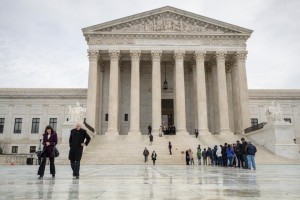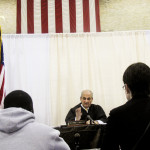
Brian A. Benczkowski, Assistant Attorney General for the Criminal Division, Department of Justice stated in a Washington Post report, “Ten former NFL players allegedly committed a brazen, multimillion dollar fraud on a health care plan meant to help their former teammates and other retired players pay legitimate, out-of-pocket medical expenses.” (Photo credit: U.S. Department of Justice)
According to a report by The Washington Post, “After an FBI investigation, the Justice Department filed charges Wednesday morning in the Eastern District of Kentucky against Robert McCune, John Eubanks, Tamarick Vanover, Ceandris Brown, James Butler, Frederick Bennett, Correll Buckhalter, Etric Pruitt, Portis and Rogers.”
Ten former NFL players were charged by the Justice Department “with defrauding a health care program for retired players of nearly $4 million.” Other players may be charged, as well.








